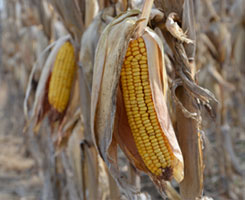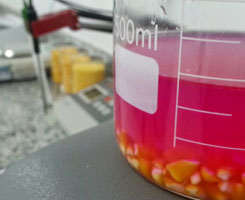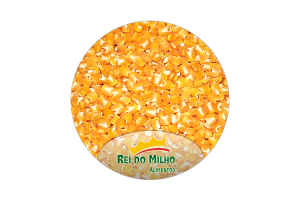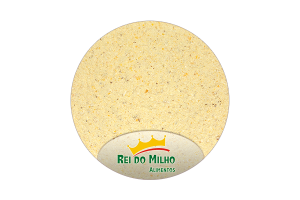
No one knows
more about corn
than us!
Industrial Responsibility
Quality and production controlAgriculture and cultivation
Discover the origin of our raw materialLaw signed by Dilma establishing the Corn Day
The National Day of the Corn was created this week and, from now on, will be celebrated nationally on 24 May.

The date was established by federal law signed by President Dilma Rousseff (PT) and the initiative was the Ministry of Agriculture. According to the text of the law the goal of the action is "to encourage and guide the corn" but, nevertheless, is unknown by producers, traders and consumers of corn. In the cities of Itapeva and Itapetininga are produced 380,000 tonnes of maize per year. In Sorocaba the Chapel of Alto Bonito Capon and cities are also strong producers of grain but experts say that culture has requested space for soybeans that have higher value of sale and is sold to the export market.
In the Upper Chapel, the Department of Agriculture director, Dinei Quevedo says that corn production generates 350 direct jobs in the city and 1,200 indirect jobs. "We have been known as the corn capital, today we lost to other municipalities but production is still very important to the city's economy," he adds. Quevedo recalls that in March is held in the city the corn festival that lasts five days and receives about 15,000 visitors a day. The lack of rain hinders the production in town and Quevedo estimate is that about 25% of the crop this year is lost. "If not granar, corn is green, will have to be used to make animal feed," he adds.
Agronomist and head of the House of the High Chapel of Agriculture, Antonio Roberto Vieira Field reports that the municipality has about 1600 hectares of maize, half of corn grain and half of green corn. Facing animal feed and production of flour and other derivatives, the city produces each year, 5.6 tons of dry corn. The production of corn, consumed by humane, total 9600 tons per year in the city. According to the engineer the product price ranges from £ 0.45 to £ 0.50. In the city are about 50 producers. Field is also director in rural union Araçoiaba da Serra.
Even with little rain this summer will not be as dry as 2014, when 40% of High Chapel crop did not work. "This year we have high temperatures with half of rain expected for the month of February but it rained at the right time and it will not hurt so much production," said Field. According to him, as production was low during the past year, many farmers have given up planting corn this year. "Many had to resort to insurance or credit lines and this year are discouraged," he said. Therefore, the volume of the harvest will also be lower. The dry corn produced in the Upper Chapel is sold to farmers in the region that primarily raising pigs and poultry. But the corn is sold to other states such as Rio de Janeiro and Minas Gerais.
News published in the 1/30/15 edition of the Journal of Southern Cross - Carolina Santana.
 PopiMAX
PopiMAX
 PopMAX
PopMAX
 CornMAX
CornMAX
 CornMAX White
CornMAX White
 SnackMAX 300
SnackMAX 300
 SnackMAX 200
SnackMAX 200
 SnackMAX 1515
SnackMAX 1515
 BeerMAX
BeerMAX
 SemMAX
SemMAX
 FecoMAX 1
FecoMAX 1
 FecoMAX 2
FecoMAX 2
 CremMAX
CremMAX
 FiberMAX
FiberMAX
 GerMAX
GerMAX


































